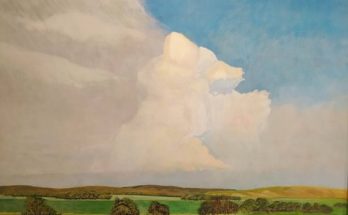By Rodrigo Diaz Guerrero
From its origins as clay tablets and papyrus to its contemporary physical or digital format, the book has been accompanying humanity. It has been a witness safeguarding against the onslaughts of time, our history, our fantasies, and our darkest fears. Ever since time immemorial, readers have belonged to a marked minority. It was either because it was an activity for certain elites, because of illiteracy, or because of lack of interest. In these times where the culture of immediacy is undeniable, we could reach easy conclusions. In Mexico, for example, according to INEGI (Reading Module 2022), the population reads an average of four books a year. This is far from countries like Finland where the average is 47 books a year. That is why, today, the promotion of reading—as well as reading per se—is an act of resistance. Inspired by this, we decided to dedicate this space to two bookstores that stand out for their commitment and passion for books in physical form.
In the center of the city, on Hernández Macías Street (almost on the corner with Insurgentes), is Camila, a book boutique. The bookstore has been there for eight months—a project by Camila Sánchez who is also a writer and editor. Opening the bookstore was a dream she had since she was little. “When I was a teenager, I had a very strong depression and in the healing process I discovered in reading that there were other places and other lives that also suffered and that, nevertheless, decided to continue living. That saved me, it was like a balm for my adolescent heart. I always wanted to share this with the world which is why the boutique’s selection of books is also very much mine,” she shares with us.
Curating in a very personal way, Sánchez offers readers in addition to her personal tastes—such as Latin American writers Fernanda Trías, Clyo Mendoza, and Guadalupe Netel—classic writers like Virginia Woolf or Charles Dickens. She gives space to publishers that bet on new Latin American talents. All this in the section of books in Spanish. The section of books in English is outlined more by the trends of the moment: current readings, best sellers, and non-fiction, among other styles.
“It intends to be a cultural meeting space. The sale of books is the excuse for the readers of San Miguel to have a space to meet and talk about books. That is why we have reading clubs, workshops, and book presentations.” To illustrate the experience, we took on our last visit “The Optic Nerve” by María Gainza and “No Leer, Chronicles and Essays on Literature” by Alejandro Zambra.
Loreto Bookstore, inside the Distrito Soma, has just completed its first year. It is a project of two siblings, Marcela and Julio César Rodríguez Loreto, who came to San Miguel determined to open a space for lovers of literature—a place where they could find a well-cared-for selection of publications that are not so easily found as well as established and emerging authors. They trust that in San Miguel there is a reading capacity for the material they have in the bookstore: literature, newspapers, essays, and art books. “You will not find new best sellers, sagas, short-term books, self-help books. Yes, the classics, yes contemporary, but not easily accessible literature that you can find in any other bookstore. We know that it is a great bet to get out of the commercial, and that is the concept of Loreto Bookstore,” says Marcela. She also expressed concerns about society’s obsession with respect to the virtuality into which electronic devices submerge us which also take us away from reading: «I am not against digital, they are tools, and that’s how we should see them. But I am worried that we will become like those beings that Plato described inside the cave. It seems to me that today as a society we are in that cave when reality is outside. That cave is the cell phone, the computer; not because of what they are, but because of how many use them. So, as a willing reader since childhood, I could only bet on books as a business.” We want to add that Marcela does face that deceptive virtuality—to get us out of the cave. On my most recent visit I took the following from Loreto Bookstore: “Litoral de Tinta and Other Poems” by Verónica Volkow, “Alluvial” by Tomás Segovia, and “Yoga” by Emmanuel Carrère.
Follow them on IG: @unaboutiquedelibros and @loreto_libreria




